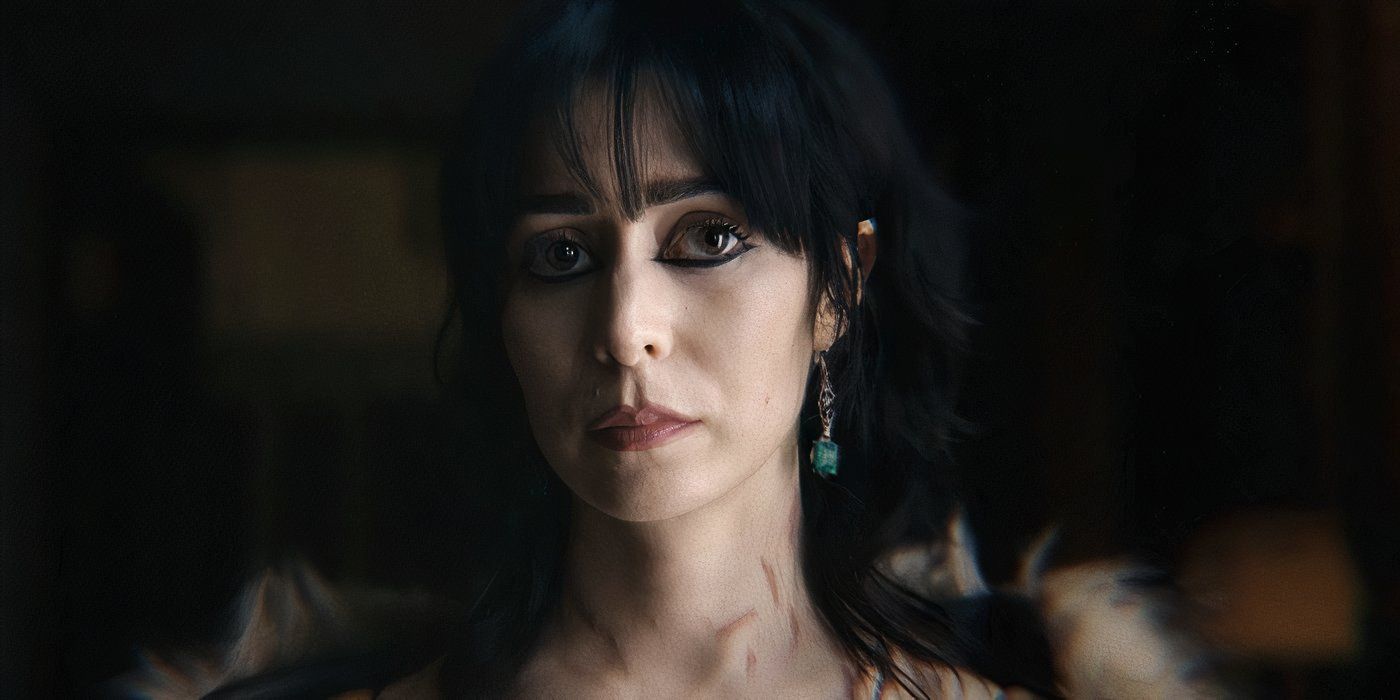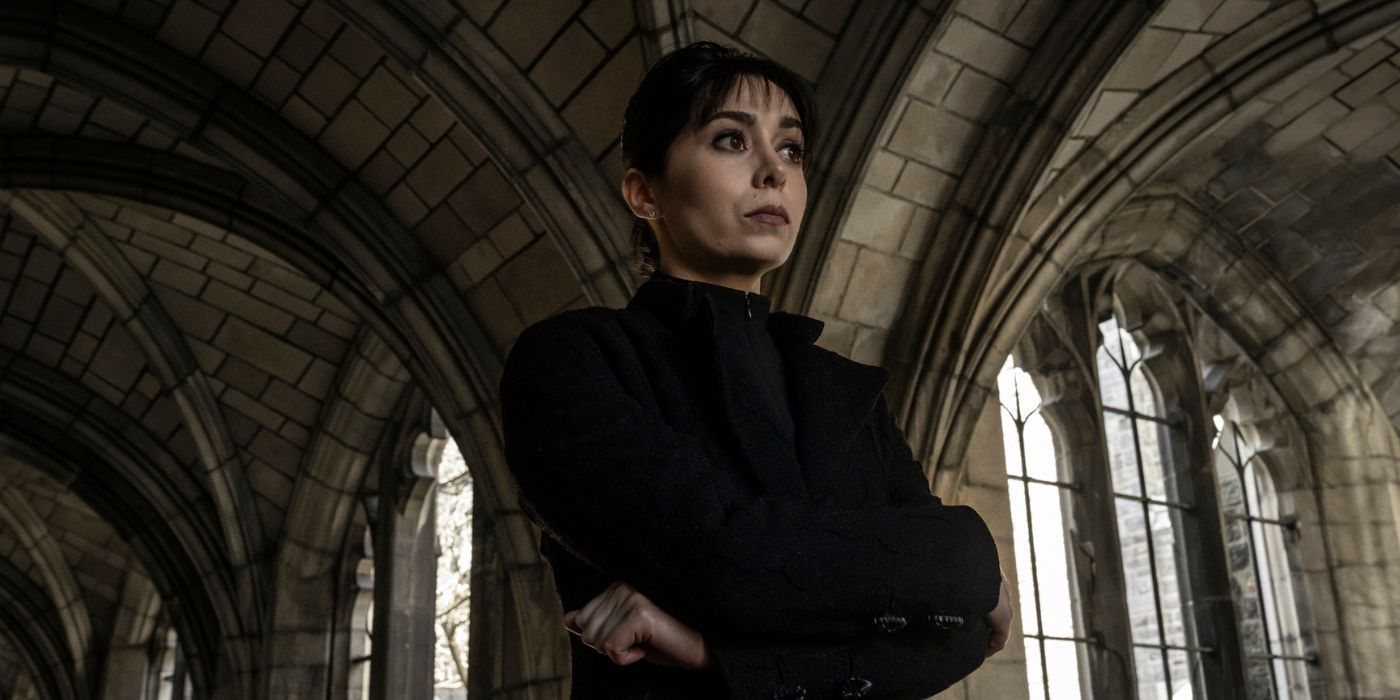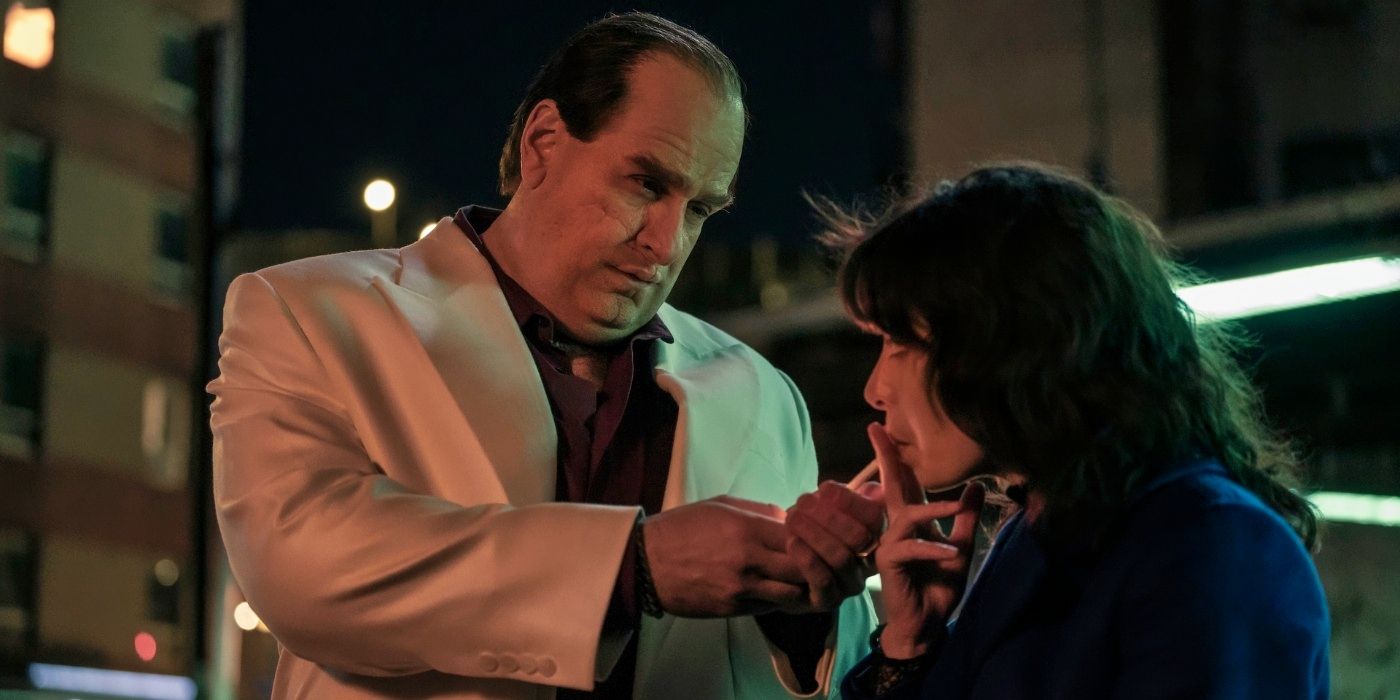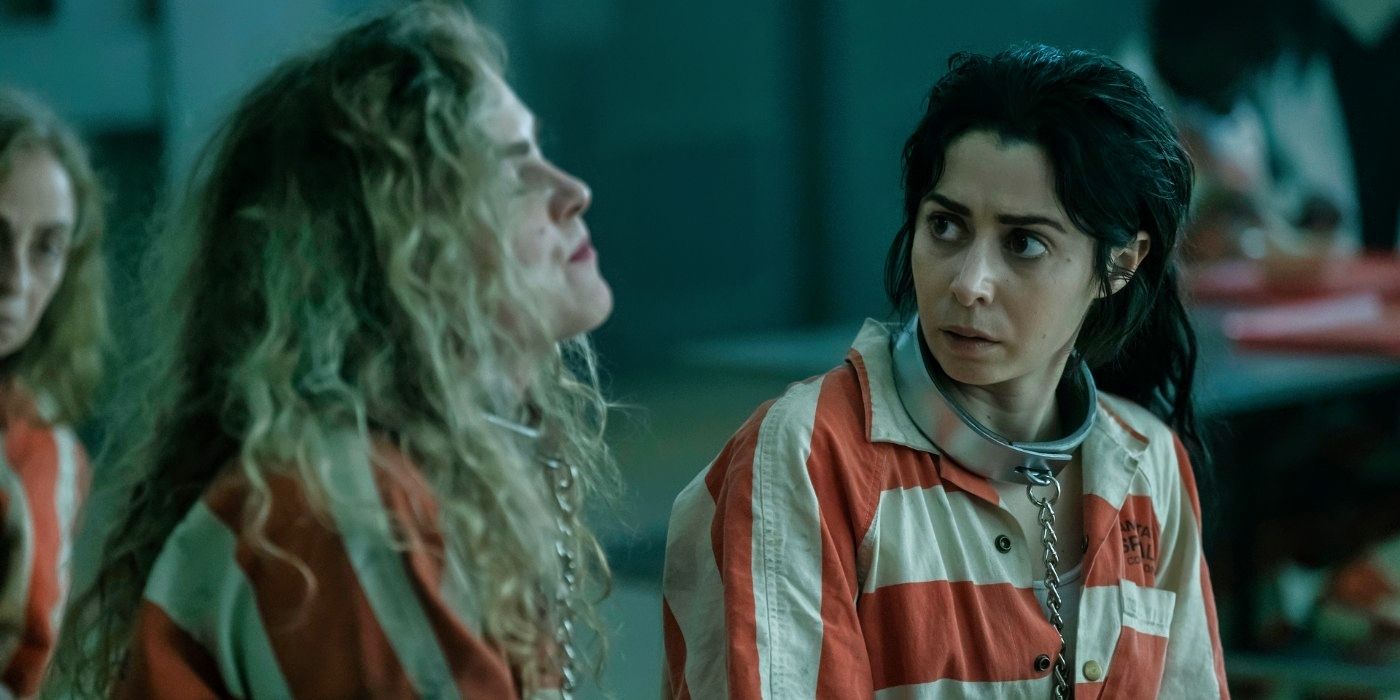
This week’s episode of The Penguin, “Cent’Anni,” marks a turning point in Sofia Falcone’s (Cristin Milioti) life. A deep dive into her backstory before and during her stay in the infamous Arkham asylum, Episode 4 subverts everyone’s expectations by revealing that she isn’t, in fact, the villain Hangman. This is a major twist, seeing as that’s who she is in the original Batman comics, but one that works perfectly for the series, turning her character arc into a tragedy, giving her a very compelling reason to go after control of the Falcone Crime Family, and giving series protagonist Oz Cobb (Colin Farrell) a run for his money when it comes to audience support.
Sofia Was Framed as the Hangman by Her Own Father, Carmine Falcone

Before The Penguin debuted a few weeks ago, not much was known about its plot, only that it would be a follow-up series to The Batman, showing Oz taking advantage of the chaos left in the wake of the Riddler’s (Paul Dano) flooding of the city and Batman’s (Robert Pattinson) crusade against Gotham’s mobsters. To do so, he would have to go against Sofia Falcone, the daughter of the late mob boss Carmine Falcone (John Turturro in The Batman, Mark Strong in The Penguin). In the Batman: The Long Halloween and Batman: Dark Victorycomics, she is also established as being the Hangman, so, naturally, everyone assumed she would keep her bloodthirsty alias in The Penguin. Not really, as it turns out.
In “Cent’Anni,” a long flashback sequence shows Sofia as being the only person in the Falcone family with an actual moral compass. She was the head of the family’s charity and philanthropy, advocating for mental health awareness among women, especially, given that she lost her own mother to suicide when she was just nine years old. It’s only when journalist Summer Gleeson (Nadine Malouf) tells her about a series of other women (who all worked at Carmine’s 44 Below club) allegedly committing suicide in the same way as her mother that Sofia connects the dots that it was her father who killed them all along. Carmine Falcone is actually the Hangman. And, as soon as he hears about Sofia’s probing from Oz, he frames her as the Hangman and sends her to Arkham, where she spends ten years.
Her father’s betrayal is what sends Sofia on a downward spiral. Before all that, Sofia was the crown jewel of the Falcone family. She was popular among her relatives, and Carmine himself mentioned that he wanted her to take his place as the head of the family instead of her brother, Alberto (Michael Zegen). The realization that her father actually killed those women is a first blow to the image she has of him as a good man, but him pinning all these deaths on Sofia obviously hurts even more, meaning she can never fully trust anyone ever again. Her stay at Arkham is marked by trauma and paranoia, thinking that everyone is there to kill her on her father’s orders, even before the frequent electric shock treatments she is forced to go through. Sofia even makes her first victim, Magpie (Marié Botha), simply because she is unable to tell anymore whether Magpie was trying to really trying to befriend her or kill her on her father’s orders.
Sofia Is Betrayed by Everyone in Her Life, and Is Aware of It


In the family dinner scene in “Cent’Anni,” Sofia’s uncle and new head of the family, Luca Falcone (Scott Cohen) says something truly beautiful when giving his toast: “We are each other’s sanctuary.” That’s a nice thing to say to one’s family, but not so much when that family has sent the only one of their own who was innocent to an asylum. The Falcones are deeply rooted in crime, and everyone knows that, but Sofia tried to make them look not only good, but also legitimate, and yet, none of her relatives showed her any support either during or after her stay at Arkham, only Alberto.
The saddest aspect of Sofia’s arc is that she never questioned her innocence. She never considered confessing to the seven women’s murder to see how that could benefit her. Her mind is constantly violated, and she is gaslit by everyone in her family, but she remains adamant about her innocence. She is aware of everything that has been done to her, of everyone who did it, and what is expected of her when she comes out of prison — to not interfere in the family business and affairs. At the end of “Cent’Anni,” her killing the members of her family and protecting young Gia (Kenzie Grey) in the greenhouse is the ultimate revenge on everyone who has knowingly and purposely wronged her, when she needed them the most. Luca’s speech, that the family is “each other’s sanctuary,” is utter nonsense in this sense, because no one was Sofia’s sanctuary.
Before the dinner scene, Sofia wakes up in doctor Julian Rush’s (Theo Rossi) office in his house. He was part of the team that experimented on her at Arkham and seems to have ulterior motives in his relationship with her — he always touches her suspiciously for a doctor treating a patient. Even then, Sofia’s reading of her situation, motivated by Oz’s betrayal of her in the previous episode, is clear. She understands her family’s and Rush’s actions as a symptom that it’s not she who is sick but that “the world is.” Thinking like this is a common trope for a character who’s falling from grace in Batman lore, but, in Sofia’s case, she retains a shred of a moral compass, making her even more complex than the Joker (Barry Keoghan), the Riddler (Paul Dano), or Two-Face.
In this sense, the audience has even more reasons to support Sofia than Oz himself, for example. Oz may be the fun, sweet-talking underdog who is reaching for the stars in the underworld, but Sofia was actually good once. She is the ultimate victim of her circumstances, paying the price for crimes she didn’t commit and understanding that she has to do terrible things if she is to survive and thrive. Right now, she may have no allies, but the Falcones’ influence is still far-reaching, so it certainly won’t take long until she stands up to Oz and the other Gotham crime bosses.
The Penguin is available to stream on Max in the U.S. New episodes air weekly on Sundays.



